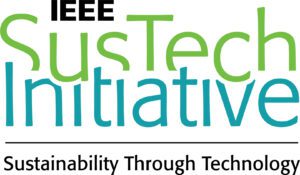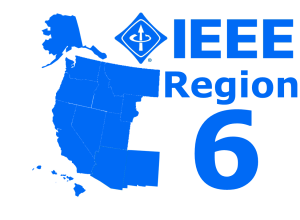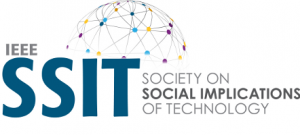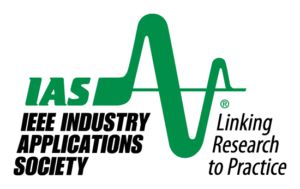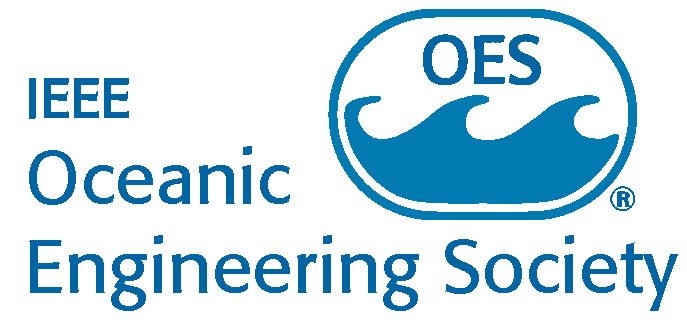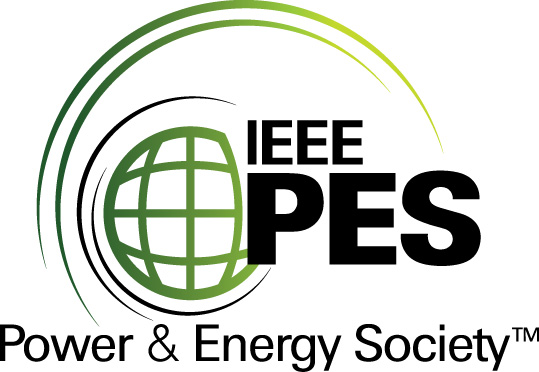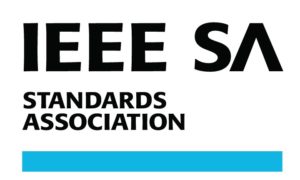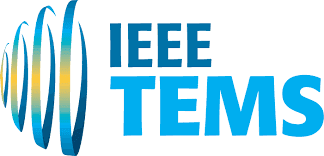Keynotes 2023
SusTech 2023 Keynotes and Plenary Speakers
All times and dates shown in Pacific Time (UTC-7)
Thursday, April 20, 2023
| Session ID | Time (PT) | Title |
| K1 | 8:00 am | Technology, Policy, and Societal Dimensions of Decarbonization: Where We Are Now, Where Did We Come From, and Where Are We Headed |
| K2 | 1:00 pm | Electric Island |
| YP reception | 6:00 pm | Climate Change and Sustainability |
Friday, April 21, 2023
| K3 | 8:00 am | Engineers + AI: The New Environmental Stewards |
| K4 | 1:00 pm | Energy Equity or Energy Divide |
| K5 | 3:30 pm | Everything that moves is going electric |
Saturday, April 22, 2023
Sustainability Forum
Technology, Policy, and Societal Dimensions of Decarbonization: Where We Are Now, Where Did We Come From, and Where Are We Headed
Thursday, April 20, 2023 @8:00 am
K John Holmes, Scholar and Director of Energy and Environmental Systems, National Academies of Sciences
Abstract:
The United States has begun a transformation of its energy system from one dominated by fossil fuel combustion to one with net-zero emissions of carbon dioxide. This decarbonization is the result of ongoing revolutions in energy technology, public policy, changing economics of energy options, and growing preferences for renewable and zero-carbon supply. The energy transformation will require not only a technological shift but also an equally fundamental economic and social transition. This transition began in earnest in the last decade and will continue through decades to come.
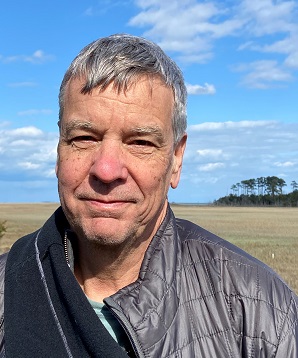 K John Holmes is the senior director and scholar of the National Academies’ Board on Energy and Environmental Systems (BEES). The portfolio for BEES is broad and includes activities on climate mitigation and assessment, electricity system modernization, fuel economy technologies for light-duty vehicles, and energy innovation. Dr. Holmes currently leads the cross-Academies initiative on the technological, societal, and policy issues related to deep decarbonization of the United States energy system. That work includes public events on a host of topics related to decarbonization and the February 2022 report Accelerating Decarbonization of the U.S, Energy System. His other recent activities include: co-directing studies on the future of the electricity system and negative emissions technologies; directing a study on electricity system resiliency; and organizing workshops on sub-national climate assessment and scaling deep decarbonization technologies.
K John Holmes is the senior director and scholar of the National Academies’ Board on Energy and Environmental Systems (BEES). The portfolio for BEES is broad and includes activities on climate mitigation and assessment, electricity system modernization, fuel economy technologies for light-duty vehicles, and energy innovation. Dr. Holmes currently leads the cross-Academies initiative on the technological, societal, and policy issues related to deep decarbonization of the United States energy system. That work includes public events on a host of topics related to decarbonization and the February 2022 report Accelerating Decarbonization of the U.S, Energy System. His other recent activities include: co-directing studies on the future of the electricity system and negative emissions technologies; directing a study on electricity system resiliency; and organizing workshops on sub-national climate assessment and scaling deep decarbonization technologies.
He has directed studies and published on a range of topics including energy technologies, climate change, renewable electricity, sub-national climate assessment, air quality management, stratospheric ozone depletion, water resources management, and carbon emissions trading. He has a personal interest in the long-term development of technology and policy and published “A historical perspective on climate change assessment” and “A Century of Environmental Technologies for Light-Duty Vehicles” related to these interests. He received a B.S. from Indiana University, M.S.E. from University of Washington, and Ph.D. from The Johns Hopkins University.
Electric Island – An innovation site for heavy duty electric vehicle charging infrastructure located in North Portland
Thursday, April 20, 2023 @1:00 pm
Ian Beil, Manager, Transmission Planning, Portland General Electric
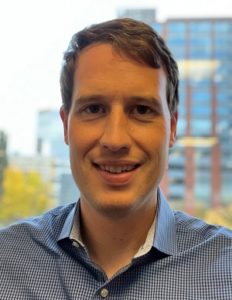 Ian Beil is an electrical power system engineer, researcher, and instructor. Ian leads the Transmission Planning team at Portland General Electric, which studies a host of long-term transmission system phenomena. He has held previous industry positions involving transportation electrification and energy storage projects, renewable energy integration studies, and electromagnetic transient analysis. He also serves as an adjunct faculty member at PSU’s Maseeh College of Engineering.
Ian Beil is an electrical power system engineer, researcher, and instructor. Ian leads the Transmission Planning team at Portland General Electric, which studies a host of long-term transmission system phenomena. He has held previous industry positions involving transportation electrification and energy storage projects, renewable energy integration studies, and electromagnetic transient analysis. He also serves as an adjunct faculty member at PSU’s Maseeh College of Engineering.
Beil holds a BS in electrical engineering from Washington University in St. Louis and an MS and PhD in electric engineering from the University of Michigan, Ann Arbor. His doctoral dissertation focused on control algorithms to optimize electric vehicle fleet charging in a capacity-constrained distribution system environment.
He is a licensed Professional Engineer in the state of Illinois, a member of the the IEEE Power & Energy Society, and a sub-group lead for the NERC System Planning Impacts from Distributed Energy Resources working group.
Climate Change and Sustainability
YP Reception, Thursday, April 20, 2023 @6:30 pm
Professor Saifur Rahman, 2023 IEEE President & CEO
Abstract:
This lecture will address what is climate change, what is causing it and how it is impacting the daily lives of citizens around the world. In the context the author will the issue of greenhouse gas emissions and how it can be reduced to help mitigate the effect of climate change.
There has been a major focus placed on the carbon produced through electricity generation, as it is responsible for roughly 30% of emissions globally, When focusing on the energy sector alone, it is apparent that nation states are coalescing into two groups when targeting carbon reductions:
- Industrialized nation states, which have been responsible for the vast majority of the total CO2 emissions thus far.
- Emerging economies, which are less responsible for past carbon emissions, but increasing their carbon emissions at a much faster rate.
A nuanced approach to reduce carbon emissions from the electric power sector will be presented which will require industrialized nation states to collaborate with emerging economies to deploy a portfolio of solutions with low-carbon generation including nuclear, hydrogen, storage and demand side management with advanced technology focusing on energy efficiency.
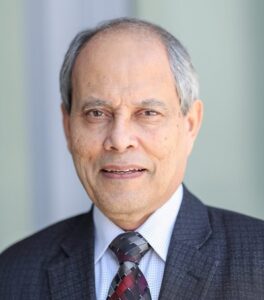 Professor Saifur Rahman is the founding director of the Advanced Research Institute at Virginia Tech, USA where he is the Joseph R. Loring professor of electrical and computer engineering. He also directs the Center for Energy and the Global Environment. He is a Life Fellow of the IEEE and an IEEE Millennium Medal winner. He is the 2023 IEEE President & CEO and was the president of the IEEE Power and Energy Society (PES) for 2018 and 2019.
Professor Saifur Rahman is the founding director of the Advanced Research Institute at Virginia Tech, USA where he is the Joseph R. Loring professor of electrical and computer engineering. He also directs the Center for Energy and the Global Environment. He is a Life Fellow of the IEEE and an IEEE Millennium Medal winner. He is the 2023 IEEE President & CEO and was the president of the IEEE Power and Energy Society (PES) for 2018 and 2019.
He was the founding editor-in-chief of the IEEE Electrification Magazine and the IEEE Transactions on Sustainable Energy. He has published over 160 journal papers and has made over five hundred conference and invited presentations. He has conducted several energy efficiency, blockchain and sensor integration projects for Duke Energy, Tokyo Electric Power Company, the US National Science Foundation, the US Department of Defense, the US Department of Energy and the State of Virginia. He has a PhD in electrical engineering from Virginia Tech.
Engineers + AI: The New Environmental Stewards
Friday, April 21, 2023 @8:00 am
Jen M. Huffstetler, Chief Product Sustainability Officer,
VP & GM, Intel Future Platforms and Sustainability Group
Abstract:
Engineers harnessing the power of Artificial Intelligence is the key to a sustainable compute future. A future of data centers connecting energy-optimized devices, powered by 100% renewable energy, and intelligently controlled by AI to save electricity and water. As the engineers responsible for making this future a reality, join us for this talk of industry progress to date and steps needed to reach a sustainable compute future.
 Jen M. Huffstetler is Chief Product Sustainability Officer, VP & GM, Intel Future Platforms and Sustainability Group. In this role she is responsible for driving the Xeon PnL strategy building, integration & execution across corporate-wide across Intel’s Data Platform technologies & business strategies to drive future growth, incubating Data Center services, and driving corporate level strategy and action for Sustainability.
Jen M. Huffstetler is Chief Product Sustainability Officer, VP & GM, Intel Future Platforms and Sustainability Group. In this role she is responsible for driving the Xeon PnL strategy building, integration & execution across corporate-wide across Intel’s Data Platform technologies & business strategies to drive future growth, incubating Data Center services, and driving corporate level strategy and action for Sustainability.
Previously, she led Data Center product management and storage; where she was responsible for the delivery to market of all data center processor products, GPUs and Intel DIMMs, driving overall data center revenue, as well as storage processor segment PnL.
Huffstetler joined Intel in 1996 as a fab process engineer and has spent the majority of her career applying her extensive technical and marketing experience to lead product management and product marketing efforts for a number of core Intel businesses, spanning the mobile (including Intel® Centrino Mobile Technology), desktop and Intel Server boards and systems.
Huffstetler holds a Bachelor’s degree in chemical engineering from MIT, and an MBA from Babson College, F.W. Olin Graduate School in Corporate Entrepreneurship. She is also a certified Executive Leadership Coach from Hudson Institute, Korn-Ferry Interpreter, and Birkman Certified.
Energy Equity or Energy Divide: IEEE Electron Device Society Brings Energy Equity to Native Hawaiian Homesteaders on Molokai Living Without Access to Grid Electricity
Friday, April 21, 2023 @ 1:00 pm
John O. Borland, J.O.B. Technologies
Abstract:
The IEEE Electron Device Society (EDS) approved funding a humanitarian project to bring Energy Equity to Native Hawaiian Homesteaders on Molokai living without access to electricity from the Grid. Molokai is an island community of ~7,300 residents (>62% Native Hawaiians) relying on tourism and government subsidies. Approximately 514 residents (129 families) live off-grid on Hawaiian Homestead Lands using imported fossil fuel for heating and to power electric generators. A family monthly expense for off-grid living averages ~$750 and varies depending on the costs of imported fossil fuel that is shipped by barge from Honolulu (gasoline ~$6/gallon and propane is $7.60).
Three homestead sites with 2 to 6 multi-generational family dwellings have been selected. Everyday life on Molokai involves using portable propane tanks for heating hot water and cooking. Gasoline stored in 5-gallon containers is used to power electric generators for electricity used for internet, computer, cell phone charging, TV/entertainment and lights. One homestead uses ice chests/boxes to chill medicine and food, while another uses wood and charcoal for cooking. Homesteaders live off the land, but end up polluting the air from all the fossil fuel they use.
To truly be self-sustaining/sufficient, we will replace all fossil fuel use with Solar + Storage + Wind for 100% clean energy from the Sun (light & heat) to create a healthier clean environment and reduce Energy Burden for Energy Equity, improving Quality of Life and never having to take a cold shower again. Each Island Nano-Grid system will provide energy sharing between each family and will be equipped with energy efficient household appliances, LED lighting and heat pumps.
The expected >$500/month (>$6,000/year) savings, “dollar saved is a dollar earned” will reduce the need for Molokai to generate cash inflow of $774K/year thereby creating a new source of cash inflow for Molokai from Passive Renewable Energy reducing tourism and government subsidies needs. This will end sending money off island to big oil companies.
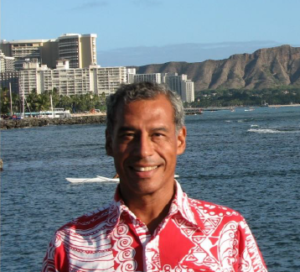 John Ogawa Borland was raised in Honolulu, Hawaii and received his BS and MS degrees in Material Science and Engineering from MIT (Massachusetts Institute of Technology). BS thesis on InP Liquid Phase Epitaxy at Hughes Malibu Research Labs and MS thesis on InGaAsP Molecular Beam Epitaxy at Nippon Telegraph and Telephone Musashino Labs in Japan. He has published 168 technical and invited papers in the areas of advanced semiconductor device manufacturing, high efficiency c-Si solar cells and residential Solar + Storage energy cost savings. He has also been awarded 7 patents. In June 2020, he published a book chapter on residential Island Nano-Grid using 100% Energy from the Sun.
John Ogawa Borland was raised in Honolulu, Hawaii and received his BS and MS degrees in Material Science and Engineering from MIT (Massachusetts Institute of Technology). BS thesis on InP Liquid Phase Epitaxy at Hughes Malibu Research Labs and MS thesis on InGaAsP Molecular Beam Epitaxy at Nippon Telegraph and Telephone Musashino Labs in Japan. He has published 168 technical and invited papers in the areas of advanced semiconductor device manufacturing, high efficiency c-Si solar cells and residential Solar + Storage energy cost savings. He has also been awarded 7 patents. In June 2020, he published a book chapter on residential Island Nano-Grid using 100% Energy from the Sun.
He started his career in Silicon Valley working for National Semiconductor on 1.25um CMOS latch-up immunity and intrinsic gettering, then moved to Applied Materials developing advanced CMOS Si-deposition techniques (Epi, Selective Epi & Poly with interface control). At Genus he was Director of Process Development & Marketing, then VP of Strategic Technology developing W-CVD technology and high energy implantation for CMOS Twin and Triple Well technology which moved him back to the Boston area. Varian (VSEA) acquired Genus, he was Director of Advanced Business Development developing Ultra-Shallow Junction technologies for CMOS scaling.
In 2003 he founded J.O.B. Technologies, a strategic technical marketing consulting company providing services to the semiconductor industry in the area of advanced CMOS process technology now focused on the 3nm node CMOS technology. He was Director of Operations at Advanced Integrated Photonics’ Hawaii 150mm silicon photonics development Fab in 2013 and 2014. Interesting note is his patent on Triple Well CMOS technology was used to successfully counter a lawsuit against Samsung DRAM and Flash Memory manufacturing in 2020.
For the solar industry he developed high efficiency c-Si solar cells using ion implantation and laser melt annealing for selective emitter technology. Currently he is focused on residential Solar + Storage to Fight Climate Change by bringing Energy Equity to the underserved communities. This involves home energy usage audit to ID options to reduce energy burden and maximize energy cost savings.
The IEEE Molokai humanitarian project is the pilot demonstration for this. He is a senior member of IEEE, the IEEE Region 6 Central Area chair, past-chair of the IEEE Hawaii section, IEEE Electron Device Society/Solid-State Circuits Society Hawaii chapter chair and IEEE Power and Energy Society Hawaii chapter chair. He is also a member of the Electrochemical Society and Materials Research Society.
Everything that moves is going electric
Friday, April 21, 2023 @ 3:30 pm
Jeff Allen, Executive Director, Forth
Abstract:
Ten years ago, electric vehicles were just beginning to enter the US market. In 2022, 18.8% of all new cars sold in California (and 5.8% nationwide) were electric. Dozens of countries, states, and major automakers have set definite and legally binding deadlines to end the sale of new internal combustion vehicles altogether. Meanwhile, we are seeing the rapid deployment of electric buses, trucks, tractors and more. Electric transportation will play a pivotal role in meeting our climate targets. What is the state of the industry today? What is coming next? And what are the technologies and policies that are needed to sustain this momentum?
Forth is a nonprofit organization with over 40 staff based in Portland and working nationwide to electrify transportation. The Forth Roadmap Conference is the nation’s premier electric transportation gathering, and will attract well over 1,000 people to Portland May 15-17, 2023.
 Jeff Allen has served as Executive Director of Forth since its founding in 2011. Forth is a nonprofit organization with over 40 staff based in Portland and working nationwide To electrify transportation by bringing diverse stakeholders together to eliminate pollution and barriers to access. Mr. Allen previously served as Executive Director or organizational development consultant to several nonprofit organizations, including the Oregon Environmental Council, where he served as Executive Director from 1996-2006. He holds a Master’s degree in Public Policy from the Goldman School of Public Policy at the University of California, Berkeley and graduated Phi Beta Kappa from the University of Michigan.
Jeff Allen has served as Executive Director of Forth since its founding in 2011. Forth is a nonprofit organization with over 40 staff based in Portland and working nationwide To electrify transportation by bringing diverse stakeholders together to eliminate pollution and barriers to access. Mr. Allen previously served as Executive Director or organizational development consultant to several nonprofit organizations, including the Oregon Environmental Council, where he served as Executive Director from 1996-2006. He holds a Master’s degree in Public Policy from the Goldman School of Public Policy at the University of California, Berkeley and graduated Phi Beta Kappa from the University of Michigan.
Where We Thought We Would Be and Where We Think We’re Going
Saturday, April 22, 2023 @ 8:00 am
Eric Olson, Manager of Emerging Technology and Product Management at the Northwest Energy Efficiency Alliance (NEEA)
Abstract:
Innovative and emerging technologies are crucial in energy efficiency and achieving sustainability goals. What technologies did experts think would be successful a decade ago but are struggling for adoption, and what are some that have surprised us all? Multiple technologies are available and in development that can support energy efficiency goals. We will examine barriers stakeholders can address to increase awareness and adoption and discuss some successfully promoted products.
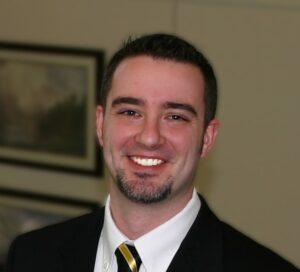 Eric Olson is the Manager of Emerging Technology and Product Management at the Northwest Energy Efficiency Alliance (NEEA). He leads a team of product managers that collaborate with efficiency organizations, utilities, and national laboratories to identify, test, and vet products, technologies, and practices that help NEEA’s 140 utility stakeholders achieve their energy efficiency goals.
Eric Olson is the Manager of Emerging Technology and Product Management at the Northwest Energy Efficiency Alliance (NEEA). He leads a team of product managers that collaborate with efficiency organizations, utilities, and national laboratories to identify, test, and vet products, technologies, and practices that help NEEA’s 140 utility stakeholders achieve their energy efficiency goals.
Olson has launched multiple innovative products throughout his nearly 25-year career, with more than ten years in environmentally focused products and industries. He focuses on discovering opportunities for product development that drive market adoption. Before joining NEEA, he was the manager of product management and product marketing for the largest and most experienced solar cell and solar panel manufacturer in the western hemisphere, launching pioneering photovoltaic products and dealer programs; developing long-term field testing with Sandia National Labs and NREL to measure the performance and durability of solar panels across various climates; and contributed to UL and IEC standards for photovoltaics. Olson also has deep experience developing and bringing consumer, commercial, and industrial engine and motor-powered equipment to market.
Olson holds a Bachelor’s degree in Business Administration and an MBA.
Electronics materials and components enabling sustainability
Saturday, April 22, 2023 @ 9:00 am
Dan Donahoe, 1000 Kilometers LLC
Abstract:
Clayton Christensen’s 1997 book The Inventor’s Dilemma popularized the word “disruption” explaining innovation by depicting technology against time as an “S-Curve”. The “S” is formed by phases of slow growth followed by rapid growth and finally by slowing growth constrained by “carrying capacity”. A series of incremental improvements of said technology, each with its own “s-curve”, agglomerates into a class forms a logarithmic curve such as the familiar Moore’s Law. Specifically, this presentation reflects on advances in materials that enabled these technology leaps with an eye to how technology impacts sustainability. Behind each of these advances are marvelous stories about people and how their work continues to enable mankind to grow population far beyond the planet’s natural carrying capacity for humans in their historical role of hunter-gatherers.
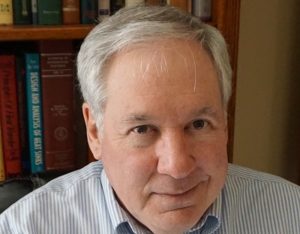 Dan Donahoe has worked around electronics for over 4 decades. He has worked for defense companies and for the Air Force, worked for computer companies, and worked as a consultant. Dan’s business is named 1000 kilometers. Dan is a Life Senior Member of IEEE and has served as a Section Chair, as an Associate Editor, as a Member at Large on both the IEEE-USA Board and the Electronics Packaging Society (EPS) Boards, as an ad hoc committee chair for IEEE TAB, and as General Chair for SusTech 2015 and Program Chair for SusTech 2023. In 2022, Dan was awarded the inaugural IEEE EPS Distinguished Achievement Certificate for Professional Engagement and Service and the Utah Engineers Council’s Engineer of the Year 2022. In 2021 he was honored by the Air Force Meritorious Civilian Service Award. He has a BS & MS from the University of Illinois, MBA from Santa Clara and PhD from the University of Maryland. He is a Registered Professional Engineer in several states.
Dan Donahoe has worked around electronics for over 4 decades. He has worked for defense companies and for the Air Force, worked for computer companies, and worked as a consultant. Dan’s business is named 1000 kilometers. Dan is a Life Senior Member of IEEE and has served as a Section Chair, as an Associate Editor, as a Member at Large on both the IEEE-USA Board and the Electronics Packaging Society (EPS) Boards, as an ad hoc committee chair for IEEE TAB, and as General Chair for SusTech 2015 and Program Chair for SusTech 2023. In 2022, Dan was awarded the inaugural IEEE EPS Distinguished Achievement Certificate for Professional Engagement and Service and the Utah Engineers Council’s Engineer of the Year 2022. In 2021 he was honored by the Air Force Meritorious Civilian Service Award. He has a BS & MS from the University of Illinois, MBA from Santa Clara and PhD from the University of Maryland. He is a Registered Professional Engineer in several states.
IEEE-USA’s policy efforts to support sustainable technology
Saturday, April 22, 2023 @ 11:45 am
Russell Harrison, Managing Director, IEEE-USA
Abstract:
IEEE-USA government relations addresses sustainability in a variety of ways. In energy policy, electric grid issues have been a longstanding focus.
- How can the US ensure strong physical and cybersecurity of the grid so that when natural disasters strike, Americans regardless of geographic location can have access to electricity? This talk will address grid policy issues in both rural as well as urban areas and will also address the current issues in all aspects of grid security, including cybersecurity.
- Sustainability in space policy is another area where IEEE-USA is looking to build better federal policy. Remote sensing is critical to mitigating and recovering from natural disaster. Satellite protection, including physical and cybersecurity is vital to space sustainability.
- IEEE-USA has been a leader in advocating for support for the basic research programs at the National Institute of Standards and Technology as well as the National Science Foundation. Many of these programs have implications for environmental sustainability and the development of technology used in sustainability practices. This talk will provide an overview of IEEE-USA’s advocacy efforts for these agencies.
- Lastly, this talk will cover how IEEE-USA staff are working on sustainable artificial intelligence policy.
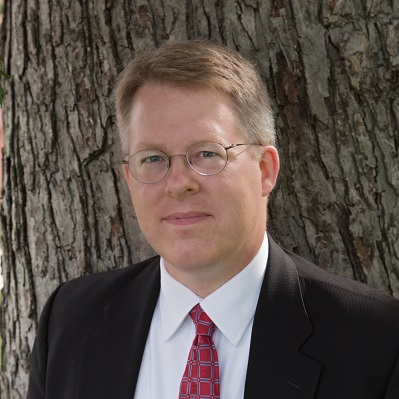 Russell Harrison is the Managing Director of the IEEE-USA, which focuses on the unique needs and concerns of IEEE members in the United States. Over his 20-year career with IEEE-USA, Russ has represented IEEE members to the American government on dozens of policy issues including autonomous vehicles, digital privacy, AI, federal research funding, export control, and immigration. In addition to directly engaging with policy makers, Russ strives to build bridges between technology professionals and politicians. He has spoken at over 300 local, national, and international events about public policy and the need for technology professionals to interact with their elected leaders.
Russell Harrison is the Managing Director of the IEEE-USA, which focuses on the unique needs and concerns of IEEE members in the United States. Over his 20-year career with IEEE-USA, Russ has represented IEEE members to the American government on dozens of policy issues including autonomous vehicles, digital privacy, AI, federal research funding, export control, and immigration. In addition to directly engaging with policy makers, Russ strives to build bridges between technology professionals and politicians. He has spoken at over 300 local, national, and international events about public policy and the need for technology professionals to interact with their elected leaders.
Prior to IEEE-USA, Russ represented recycling facilities and the steel industry on Capitol Hill. He has a Master’s in Public Management from the University of Maryland and a B.A. in Political Science from Allegheny College.
Distributed Power Generation and Storage for a Renewable Energy Dominant Future
Saturday, April 22, 2023 @ 1:15 pm
Mahima Gupta, Portland State University
Abstract:
Replacing fossil fuels with clean and sustainable energy sources is essential to avoid critical disruptions due to climate change. The electric grid in many countries have high fractions of renewables: Iceland (100%), Norway (97%), Kenya (90%), Brazil (80%), Canada (65%). As per the U.S. Energy Information Agency, in 2021, the share of renewables in the U.S. electricity generation resource mix is 21% and could reach 42% by 2050. Could we aim for higher? How would a 100% Green U.S. Electric Grid look like? What is the expected mix of renewable energy resources? What technological advancements are essential for a renewable energy dominant future? This talk focuses on the role of distributed power generation and storage systems in a renewable energy dominant future, from its definition to the system-level aspects, with emphasis on power electronics systems designs.
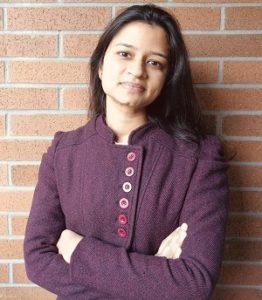 Mahima Gupta received her Ph.D. and M.S. degree in Electrical and Computer Engineering from University of Wisconsin-Madison, Madison, WI, in 2019 and 2015 respectively. At UW-Madison, she was affiliated with the Wisconsin Electric Machine and Power Electronics Consortium (WEMPEC). She received her B.E. degree in Electrical and Electronics Engineering from Birla Institute of Technology and Science, Pilani, India. Currently, she is an Assistant Professor at Portland State University, Portland, OR.
Mahima Gupta received her Ph.D. and M.S. degree in Electrical and Computer Engineering from University of Wisconsin-Madison, Madison, WI, in 2019 and 2015 respectively. At UW-Madison, she was affiliated with the Wisconsin Electric Machine and Power Electronics Consortium (WEMPEC). She received her B.E. degree in Electrical and Electronics Engineering from Birla Institute of Technology and Science, Pilani, India. Currently, she is an Assistant Professor at Portland State University, Portland, OR.
Her research interests include power electronic conversion & control, modular multilevel power converters, motor drive systems, and electromagnetic interference issues due to power electronics. Prior to joining PSU in 2020, she was a part of the Research and Advanced Engineering group with Ford Motor Company at Dearborn, MI where she worked on next-generation electrified powertrains.
Dr. Gupta, in recognition of her teaching and research excellence, was the recipient of the 2018 Gerald Holdridge Teaching Award, and the 2016 Edward R. Felber Power Fellowship. Her research has been funded by the National Science Foundation.
Second-Life EV Batteries for Renewable and Smart Grid Storage Applications
Saturday, April 22, 2023 @ 2:15 pm
Chris Mi, Fellow of IEEE & SAE, San Diego State University
Abstract:
The number of electric vehicles (EVs) on roads is growing rapidly. EV batteries today, almost exclusively lithium-ion based, can last about 10 years before they can no longer provide the required performance such as power and range. They cost heavily in both production and recycling. So economically dealing with retired EV batteries is an important topic. It is estimated that the first huge wave of EV battery retirement will hit in 2025, and more retired batteries will be available each year thereafter.
On the other hand, renewable energy, such as solar photovoltaic (PV) and wind, also enjoy a high rate of penetration. To buffer the volatile nature of the energy output of renewable energy systems, battery energy storage systems (BESSs) are frequently incorporated to balance out the variability in power generation, efficiently manage the dynamics of demand and supply, mitigate the potential failure of the grid due to over generation, provide power during a power outage, and enable cost savings by shifting the peak use and reduce demand charge. However, the high cost of new batteries in renewable and grid storage systems is a major concern for potential home and business owners.
Batteries in EVs degrade gradually over the lifetime of the vehicle and will reach the point that it is no longer able to provide the required performance, such as range and acceleration. Second-life EV batteries include not only the batteries that are discarded from EVs due to degraded conditions; but also in-warranty replacements; road accidents; test vehicle batteries; and unsold batteries. Second-life EV batteries, though no longer roadworthy in the vehicle, still have considerable capacity for renewable energy and smart grid applications where the requirement for energy and power density is not as stringent in vehicles. The use of second-life EV batteries in grid BESS extends the life cycle of batteries after their first life in EVs, improves the environment, reduces EV ownership cost by selling them for second-life use, and reduces the cost of BESS in renewable energy systems.
However, there are a number of barriers to overcome in the deployment of second-life EV batteries, including how to properly remove them from vehicles, transport, store, test, and select second-life batteries for storage applications; how to quickly, and accurately identify the battery health conditions of every cell before and after deployment in grid storage; how to dynamically manage them so as to minimize degradation and optimize usage; and how to meet various standards related to fire hazardous mitigation/prevention, certification, permit, and safety.
This talk will holistically look at these issues and address how second-life EV batteries can be used in renewable energy and smart grid applications. The talk will include storage system design, battery management, battery balancing, size optimization, and system control and optimization for demand charge management and peak shaving. We will also look at the various testing requirements for identifying the conditions of used EV batteries. The aging mechanism of second-life EV batteries will be presented. Various topologies for storage applications, safety, standard, and permit-related issues, will also be discussed.
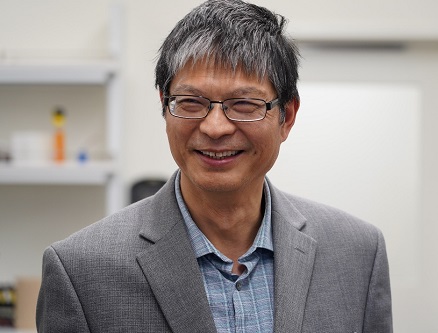 Chris Mi is distinguished Professor of Electrical and Computer Engineering at San Diego State University. He is a Fellow of IEEE (Institute of Electrical and Electronics Engineers) and SAE (Society of Automotive Engineers). He is also the Director of the US Department of Energy-funded Graduate Automotive Technology Education (GATE) Center for Electric Drive Transportation at SDSU. He was previously a faculty member at the University of Michigan-Dearborn from 2001 to 2015, and an Electrical Engineer with General Electric from 2000 to 2001. He also served as the CTO of 1Power Solutions from 2008 to 2011 and is currently the CTO of EV Safe Charge, Inc. Dr. Mi received his Ph. D from the University of Toronto, Canada, in 2001.
Chris Mi is distinguished Professor of Electrical and Computer Engineering at San Diego State University. He is a Fellow of IEEE (Institute of Electrical and Electronics Engineers) and SAE (Society of Automotive Engineers). He is also the Director of the US Department of Energy-funded Graduate Automotive Technology Education (GATE) Center for Electric Drive Transportation at SDSU. He was previously a faculty member at the University of Michigan-Dearborn from 2001 to 2015, and an Electrical Engineer with General Electric from 2000 to 2001. He also served as the CTO of 1Power Solutions from 2008 to 2011 and is currently the CTO of EV Safe Charge, Inc. Dr. Mi received his Ph. D from the University of Toronto, Canada, in 2001.
Dr. Mi has published five books, 204 journal papers, 126 conference papers, and 25 issued and pending patents. He served as Editor-in-Chief, Area Editor, Guest Editor, and Associate Editor of multiple IEEE Transactions and international journals, as well as the General Chair of over ten IEEE international conferences. Dr. Mi has won numerous awards, including the “Distinguished Teaching Award” and “Distinguished Research Award” from the University of Michigan-Dearborn, IEEE Region 4 “Outstanding Engineer Award,” IEEE Southeastern Michigan Section “Outstanding Professional Award,” and SAE “Environmental Excellence in Transportation (E2T) Award.” He is the recipient of three Best Paper Awards from IEEE Transactions on Power Electronics and the 2017 ECCE Student Demonstration Award. In 2019, he received the Inaugural IEEE Power Electronics Emerging Technology Award. In 2022, he received the Albert W. Johnson Research Lectureship and named the Distinguished Professor, the highest honor given to a SDSU faculty member and only one award is given each year.
Dr. Mi was the Chair (2008-2009) and Vice-Chair (2006-2007) of the IEEE Southeastern Michigan Section. Dr. Mi was the General Chair of the 5th IEEE Vehicle Power and Propulsion Conference, Area Editor of IEEE Transactions on Vehicular Technology, associate editor of IEEE Transactions on Power Electronics, Associate Editor of IEEE Transactions on Industry Applications. He is the topic chair for the 2011 IEEE International Future Energy Challenge and the General Chair for the 2013 IEEE International Future Energy Challenge. Dr. Chris Mi is a Distinguished Lecturer (DL) of the IEEE Vehicular Technology Society.
He is Guest Editor-in-Chief of IEEE Journal of Emerging and Selected Topics in Power Electronics – Special Issue on WPT, Guest Co-Editor-in-Chief of IEEE Transactions on Power Electronics Special Issue on WPT, Guest Editor of IEEE Transactions on Industrial Electronics – Special Issue on dynamic wireless power transfer, and steering committee member of the IEEE Transportation Electrification Conference (ITEC- Asian). He is Program Chair or General Chair of a number of international conferences, including Workshop on Wireless Power Transfer (WoW), IEEE International Electric Vehicle Conference (IEVC), and IEEE International Transportation Electrification Conference – Asia-Pacific. He is the Guest Editor of a Special Issue of the Proceedings of the IEEE – Electric and Hybrid Vehicles.
From Boundaries to Beauty – The Human Side of Sustainability
Saturday, April 22, 2023 @ 3:15 pm
John C. Havens, Lead of Sustainability Practice, the IEEE Standards Association
Abstract:
Engineers use “boundary conditions” that provide constraints when determining solutions to design or manufacturing challenges. By providing these conditions, refinements for scope and goals become specific and actionable. When dealing with issues of climate change, however, engineering becomes a “wicked problem,” where systems thinking must reckon with multiple variables in regards to planetary and societal elements of design. This widening of scope to include societal and cultural issues becomes a challenge for existing boundaries, especially when there isn’t a common definition for what “sustainability” even means.
Many well-intentioned efforts to minimize emissions or be “green” stem from the need to adhere to current or potential regulatory measures. Whereas the word “sustainability” literally translates to “longevity,” today most organizations position climate change mitigation or adaptation efforts via short-term planning to maintain fiscal growth for investors and shareholders versus adapting more holistic “boundary conditions” that includes employees, customers, communities, and the ecosystems comprising all stakeholders in a value chain. Where design factors in this paradigm are framed via Environmental, Social, and Governance (ESG) metrics where any of these three elements can be prioritized, “weak” sustainability determines outcomes of design. In contrast, “strong” sustainability recognizes that earth’s resources are finite and climate change is not determined by economic or cultural factors in isolation.
By prioritizing ecological flourishing and human wellbeing at the outset of design we can recognize and reinforce the regenerative power of people and planet to honor the boundaries that will bring beauty now and for generations to come.
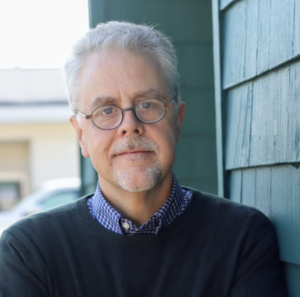 John C. Havens is Lead of the Sustainability Practice of the IEEE Standards Association where he drives the strategy, coordination, and vision for the IEEE SA Planet Positive 2030 Program. He is also Executive Director of The IEEE Global Initiative on Ethics of Autonomous and Intelligent Systems which was responsible for the creation and iteration of a body of work known as Ethically Aligned Design: A Vision for Prioritizing Human Well-being with Autonomous and Intelligent Systems that was utilized by the United Nations, the OECD, IBM and dozens of organizations to create their AI principles, policies, and technology.
John C. Havens is Lead of the Sustainability Practice of the IEEE Standards Association where he drives the strategy, coordination, and vision for the IEEE SA Planet Positive 2030 Program. He is also Executive Director of The IEEE Global Initiative on Ethics of Autonomous and Intelligent Systems which was responsible for the creation and iteration of a body of work known as Ethically Aligned Design: A Vision for Prioritizing Human Well-being with Autonomous and Intelligent Systems that was utilized by the United Nations, the OECD, IBM and dozens of organizations to create their AI principles, policies, and technology.
Previously, John was an EVP of Social Media at PR Firm, Porter Novelli, led Business Development at BlogTalkRadio, and was a professional actor for over 15 years. John has written for Mashable and The Guardian and is author of the books, Heartificial Intelligence: Embracing Our Humanity To Maximize Machines and Hacking Happiness: Why Your Personal Data Counts and How Tracking it Can Change the World. For more information, follow John on LinkedIn or @johnchavens on twitter. John currently has over ninety citations on Research Gate and dozens of articles for outlets such as The Guardian, Quartz, IEEE Spectrum and Mashable.



